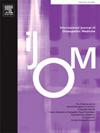Is visceral osteopathy therapy effective? A systematic review and meta-analysis
IF 1.5
4区 医学
Q2 MEDICINE, GENERAL & INTERNAL
引用次数: 0
Abstract
Objective
This systematic review with meta-analysis aims to evaluate the clinical effectiveness of visceral osteopathy (VO) in musculoskeletal and non-musculoskeletal disorders.
Methods
Two independent reviewers searched in PubMed, Physiotherapy Evidence Database, Cochrane Library, Scopus, and Web of Science databases in November 2023 and extracted data for randomized controlled trials evaluating the clinical effectiveness of VO. The risk of bias and the certainty of evidence were assessed using the Risk-of-Bias tool 2 and the GRADE Profile, respectively. Meta-analyses were conducted using random effect models using RevMan 5.4. software.
Results
Fifteen studies were included in the qualitative and seven in the quantitative synthesis. For musculoskeletal disorders, the qualitative and quantitative synthesis suggested that VO produces no statistically significant changes in any outcome variable for patients with low back pain, neck pain or urinary incontinence. For non-musculoskeletal conditions, the qualitative synthesis showed that VO was not effective for the treatment of irritable bowel syndrome, breast cancer, and very low weight preterm infants. Most of the studies were classified as high risk of bias and the certainty of evidence downgraded to low or very low.
Conclusion
VO did not show any benefit in any musculoskeletal or non-musculoskeletal condition.
内脏整骨疗法有效吗?系统回顾和荟萃分析
方法两位独立审稿人于 2023 年 11 月在 PubMed、物理治疗证据数据库、Cochrane 图书馆、Scopus 和 Web of Science 数据库中进行了检索,并提取了评估内脏整骨疗法(VO)临床疗效的随机对照试验数据。分别使用偏倚风险工具 2 和 GRADE Profile 评估了偏倚风险和证据的确定性。使用 RevMan 5.4 软件的随机效应模型进行了元分析。结果 15 项研究被纳入定性综述,7 项研究被纳入定量综述。对于肌肉骨骼疾病,定性和定量综合研究表明,VO 对腰背痛、颈部疼痛或尿失禁患者的任何结果变量都不会产生统计学意义上的显著变化。对于非肌肉骨骼疾病,定性综述显示,VO 对治疗肠易激综合征、乳腺癌和超低体重早产儿无效。大多数研究被归类为高偏倚风险,证据的确定性降为低或极低。
本文章由计算机程序翻译,如有差异,请以英文原文为准。
求助全文
约1分钟内获得全文
求助全文
来源期刊
CiteScore
2.20
自引率
36.80%
发文量
42
审稿时长
3 months
期刊介绍:
The International Journal of Osteopathic Medicine is a peer-reviewed journal that provides for the publication of high quality research articles and review papers that are as broad as the many disciplines that influence and underpin the principles and practice of osteopathic medicine. Particular emphasis is given to basic science research, clinical epidemiology and health social science in relation to osteopathy and neuromusculoskeletal medicine.
The Editorial Board encourages submission of articles based on both quantitative and qualitative research designs. The Editorial Board also aims to provide a forum for discourse and debate on any aspect of osteopathy and neuromusculoskeletal medicine with the aim of critically evaluating existing practices in regard to the diagnosis, treatment and management of patients with neuromusculoskeletal disorders and somatic dysfunction. All manuscripts submitted to the IJOM are subject to a blinded review process. The categories currently available for publication include reports of original research, review papers, commentaries and articles related to clinical practice, including case reports. Further details can be found in the IJOM Instructions for Authors. Manuscripts are accepted for publication with the understanding that no substantial part has been, or will be published elsewhere.

 求助内容:
求助内容: 应助结果提醒方式:
应助结果提醒方式:


